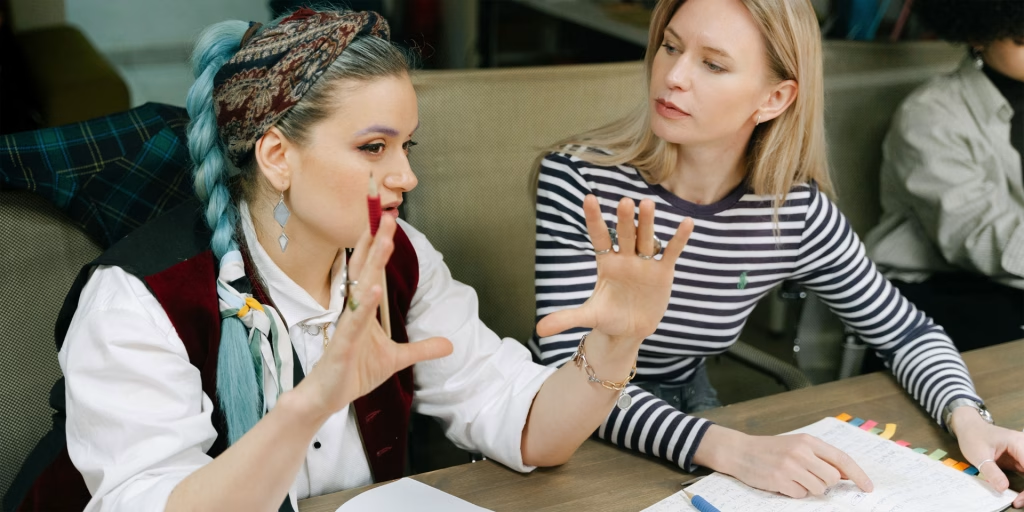
In Moldova, women support women
The growing presence of women in leadership positions and the support of community initiatives indicate that the future is promising for female entrepreneurs.
High competition and access to capital are the most common challenges faced by female entrepreneurs in Moldova, with balancing family and work and market-specific issues also cited as obstacles.
Meanwhile, financial independence and autonomy are the main motivations for Moldovan female entrepreneurs to set up a business, with the desire to prove oneself and pursue a lifelong dream also mentioned.
Despite progress in gender equality, stereotypes and discrimination still exist in the private sector, and challenges to women entrepreneurs are greater when entering industries traditionally dominated by men.
Yet, the growing presence of women in leadership positions and community support initiatives indicate a promising future for Moldovan female entrepreneurship.
Market-specific challenges
In our recent survey conducted as part of the She’s Next Empowered by Visa initiative, the most frequently reported challenges faced by entrepreneurs are high competition and obtaining investments/financing with 43.3 per cent and 39.2 per cent of respondents citing it as a major hurdle, respectively.
Access to capital was reiterated by interviewees as a major challenge. An SME founder said: “We did not have our own initial money to invest and grow really fast, thus we had to grow really slow year by year according to our profits.” Also, an NGO founder stated: “In the beginning, finding funding to sustain the organisation was the main issue.”
Other reported challenges include recruitment and building teams (20.8 per cent), unfavourable business conditions (20 per cent), lack of legislation aimed at supporting business (20 per cent), bureaucracy and the complexity of administration and accounting (17.5 per cent), finding partners (17.5 per cent), and finding suppliers of high-quality goods (17.5 per cent).
Additional unique challenges faced by female entrepreneurs are highlighted by the experiences of women who have started and run their businesses.
Market specifics, such as the size and income of the market, create difficulties in finding clients for a top-premium product, according to an SME founder. “The market in Moldova is small, and purchasing power and incomes are very low. The challenge for the company is to produce a premium product that is not the cheapest, even if it is not that high in price.”
Another mentioned challenge is the difficulty in balancing family life and business. Childcare is a major issue for women who want to pursue their careers, as a business enabler points out, “As long as a woman doesn’t have good alternatives and solutions for childcare, she is quite limited in her potential and in developing her career.”
Although the data shows that only a small percentage of respondents (4.2 per cent) reported that the perception of women entrepreneurs in local culture is a significant obstacle, it is worth noting that cultural and societal norms continue to shape attitudes towards women in business, particularly in rural areas.
As one business enabler observed, “Girls are still being encouraged to focus on their future successful marriage, rather than their future successful career.” However, there is hope that this will change in time.
Role models
Financial independence and autonomy are the main motivations for Moldovan female entrepreneurs to set up a business. Earning more money was indicated by 63.3 per cent of respondents as their primary reason for starting a business, with a desire to work for themselves and not for someone else noted by 35 per cent of respondents.
Other motivations included the desire to prove oneself and show that they can succeed (18.3 per cent), pursuing a lifelong dream (11.7 per cent), helping others (10.8 per cent), and building a career (10 per cent).
It’s worth noting that many entrepreneurs likely have multiple motivations for starting their own business, and that these motivations may change over time as the business evolves or according to individual circumstances and experiences.
One NGO founder said that her motivation to start her venture was, “the socio-political context of Moldova as it was a time a of change and reconstruction.” One SME founder said that: “I wanted to develop something myself, to be able to materialise my vision about something.”
Role models can play a significant factor in motivating individuals to start their own businesses. As an NGO founder puts it, “it is extremely important to have role models.” For her, her parents and especially her father and his job in public service were important. “Other inspiration came from teachers, colleagues, and their experiences abroad,” she said.
A business enabler highlighted the determined and passionate women surrounding her as her role models. “Now I can inspire younger women”, she added.

Gender equality and empowering women
Moldova has seen progress in gender equality for female entrepreneurs, but stereotypes and discrimination still exist in the private sector. Nevertheless, the growing presence of women in leadership positions and the support of community initiatives indicate that the future is promising for female entrepreneurs.
An NGO founder stated that she has not personally encountered discrimination, but acknowledges its existence, particularly in the private sector. “Although things are changing now, there is less pressure on businessmen than on businesswomen,” she added. Our survey results confirmed the occurrence of gender discrimination, albeit at low levels, with 3.3 per cent of respondents citing it as a challenge in their business endeavours.
The fact that challenges to women entrepreneurs are harder when entering industries that are traditionally dominated by men was also mentioned by another interviewee. An SME founder said: “At the beginning it was harder being an entrepreneur in a male-dominated business.” But she also added that at some point, “I believe that I benefitted from a positive discrimination.”
Remarkably, one business enabler even said that: “Moldova is not a country where we should seriously talk about discrimination.”
In another context, interviewees stated that Moldova provides equal conditions for female entrepreneurship as compared to male entrepreneurship, and the cultural environment favours women in leadership roles. One business enabler mentioned that women in Moldova has always been seen as “dedicated, restless and very responsible for what they are doing,” and that “it is not a recent trend to have women in leading positions.”
It is also noteworthy to mention that according to a business enabler “an interesting fact about Moldova is that the three-leading business associations are all managed by female executive directors.”
Although there has been a change in recent years, with more women reaching positions of power in politics and business, the importance of sharing and visibility cannot be overstated. Indeed, our survey data reveals that collaboration and learning from others are highly valued by many Moldovan entrepreneurs in overcoming obstacles and achieving success.
In our survey, a significant proportion (82.7 per cent) of respondents consider it essential to share knowledge and experience with others, while 86.0 per cent of entrepreneurs are interested in expanding their networks by joining an international community of entrepreneurs.
Other initiatives can be a significant factor in supporting and empowering women entrepreneurs. A business enabler believes that: “For women to be successful in the community, they have to be supported by other women.” She also adds that she puts “a lot of trust in young women.”
Check out the Visa Business card, which has been developed to meet the needs of small businesses and payments everywhere. It’s an easy way to separate corporate and personal expenses, and manage business and individual accounts. Payments with a business card also save time and fees, and are quick and secure. As a bonus, you receive special offers and promotions from Visa’s partners for the support and development of your business on a regular basis.
New Free Courses — Made for Ambitious Women Entrepreneurs!
It’s time to grow smarter, adapt faster, and take your business global.
Explore two powerful courses available exclusively to She’s Next members:
The Reinvention Masterclass for Start-up Founders
Beyond Borders: Building for Global Success
Enroll today — it’s free!






Responses